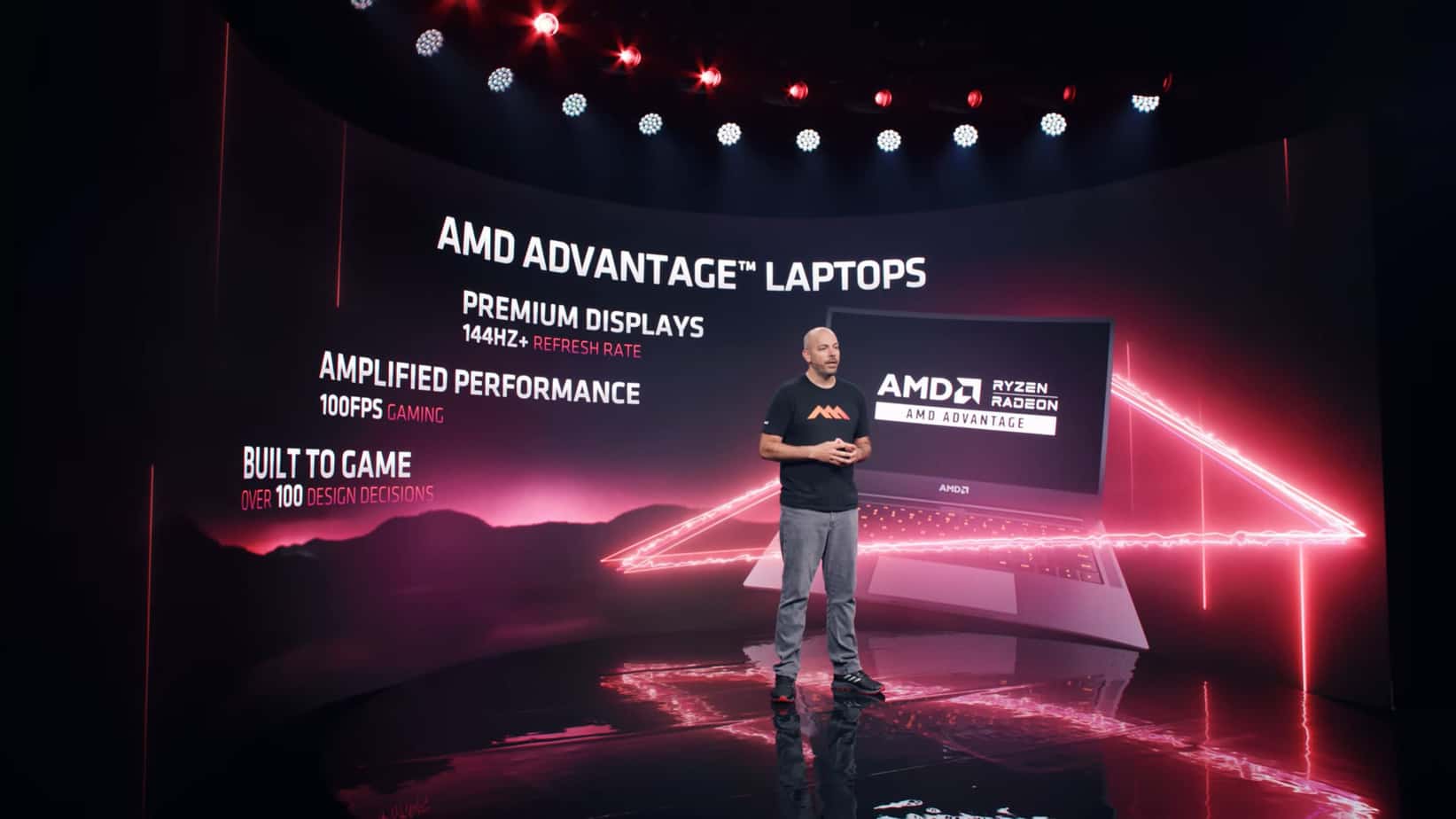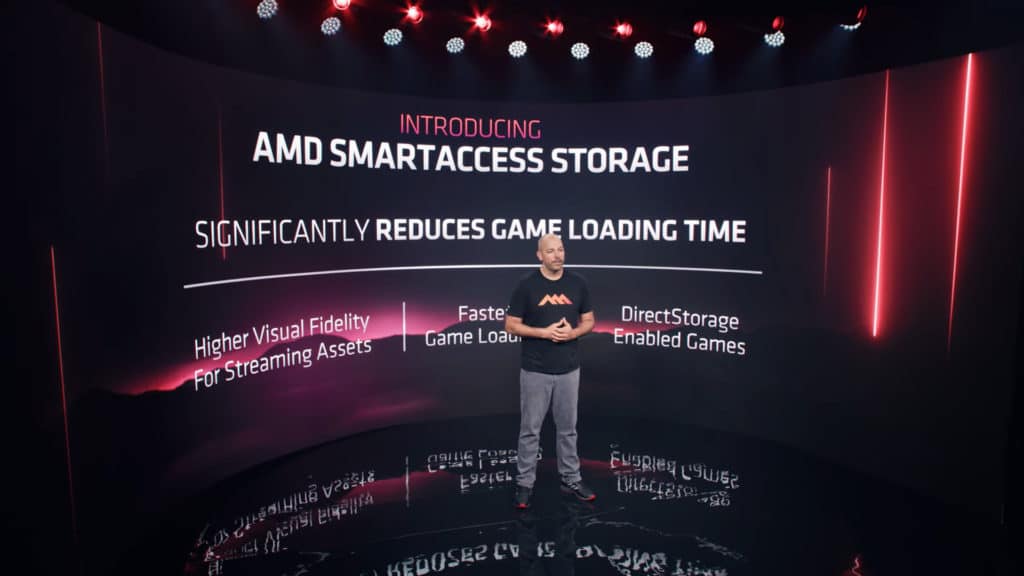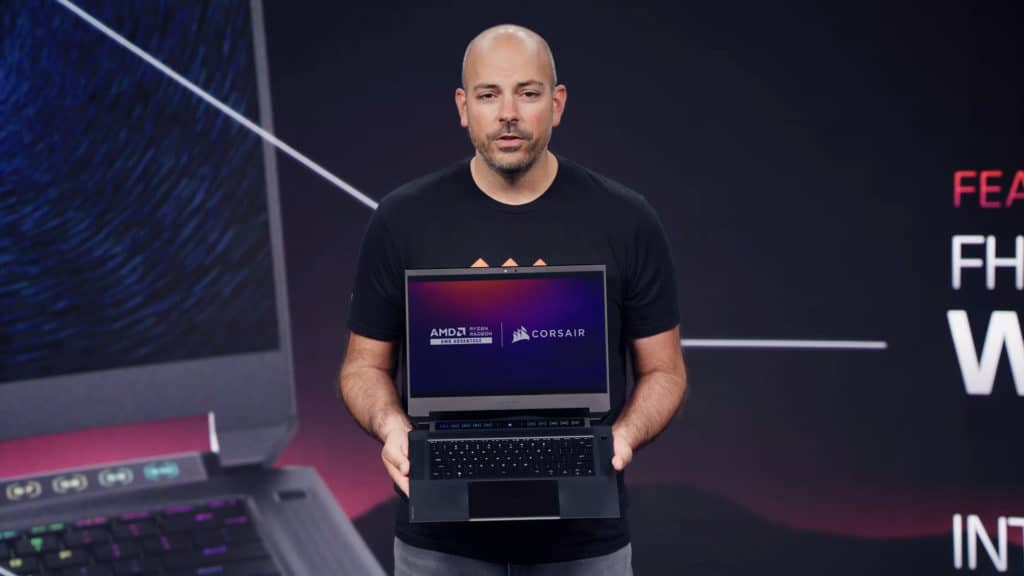AMD Advantage – Smart Access Storage Promises to Trim Game Load Times

Table of Contents
During its Computex 2022 keynote speech, AMD unveiled the latest update to the AMD Advantage smart technology systems, AMD Smart Access Storage, and a host of new laptops leveraging the tech.
AMD Advantage Smart Access Storage

AMD Smart Access Storage is a new advanced storage capability that taps into Microsoft’s DirectStorage API and AMD’s Smart Access Memory to trim game load times and texture streaming.
Prime Day is finally here! Find all the biggest tech and PC deals below.
- Sapphire 11348-03-20G Pulse AMD Radeon™ RX 9070 XT Was $779 Now $739
- AMD Ryzen 7 7800X3D 8-Core, 16-Thread Desktop Processor Was $449 Now $341
- ASUS RTX™ 5060 OC Edition Graphics Card Was $379 Now $339
- LG 77-Inch Class OLED evo AI 4K C5 Series Smart TV Was $3,696 Now $2,796
- Intel® Core™ i7-14700K New Gaming Desktop Was $320.99 Now $274
- Lexar 2TB NM1090 w/HeatSink SSD PCIe Gen5x4 NVMe M.2 Was $281.97 Now $214.98
- Apple Watch Series 10 GPS + Cellular 42mm case Smartwatch Was $499.99 Now $379.99
- ASUS ROG Strix G16 (2025) 16" FHD, RTX 5060 gaming laptop Was $1,499.99 Now $1,274.99
- Apple iPad mini (A17 Pro): Apple Intelligence Was $499.99 Now $379.99
*Prices and savings subject to change. Click through to get the current prices.
Though details are thin, AMD explained that Smart Access Storage ‘gets you out of the load screen and into your gameplay faster than ever’ by delegating asset decompression to Radeon GPUs, avoiding CPU bottlenecks and reducing latency.
From what we’ve heard so far, it’s eerily similar to NVIDIA’s RTX IO technology, itself based on Microsoft’s DirectStorage and promising to offload decompression from the CPU to the GPU. NVIDIA says RTX IO will unlock the full potential of modern SSD bandwidth and, by extension, improve load times and in-game performance.
AMD’s gaming solutions and marketing chief architect, Frank Azor, says more news on Smart Access Storage is on the way in the coming months.
First Ever Corsair Gaming Laptop

AMD also announced that Corsair is launching its first-ever gaming, streaming, and content creation laptop exclusively with AMD Advantage. The Corsair Voyager A1600 is powered by Ryzen 6000-series processors and Radeon RX 6800M graphics tuned to capitalize on the full suite of AMD Advantage technologies.
The Voyager features a 16″ 2560 x 1600 240 Hz WEHD display, full-sized Cherry MX keyboard, Elgato-powered ten-key customizable S-key command buttons, an advanced compact vapor chamber cooling system, 1080p high-fidelity streaming-grade webcam, and up to 64 GB of DDR5 memory.
Customization options will include up to 64GB of DDR5, the choice between a Ryzen 7 6800HS and Ryzen 9 6900HS, and up to 2 TB of PCIe NVMe SSD storage. The Corsair Voyager launches this summer.
Elsewhere, AMD touched on other upcoming AMD Advantage laptops and how each leverages AMD Advantage to offer desktop-gaming performance on ultra-thin machines. These include the Lenovo Legion 7, ROG Zephyrus G14, Alienware M17 R5, Lenovo Legion Slim 7, and HP Omen 16.

